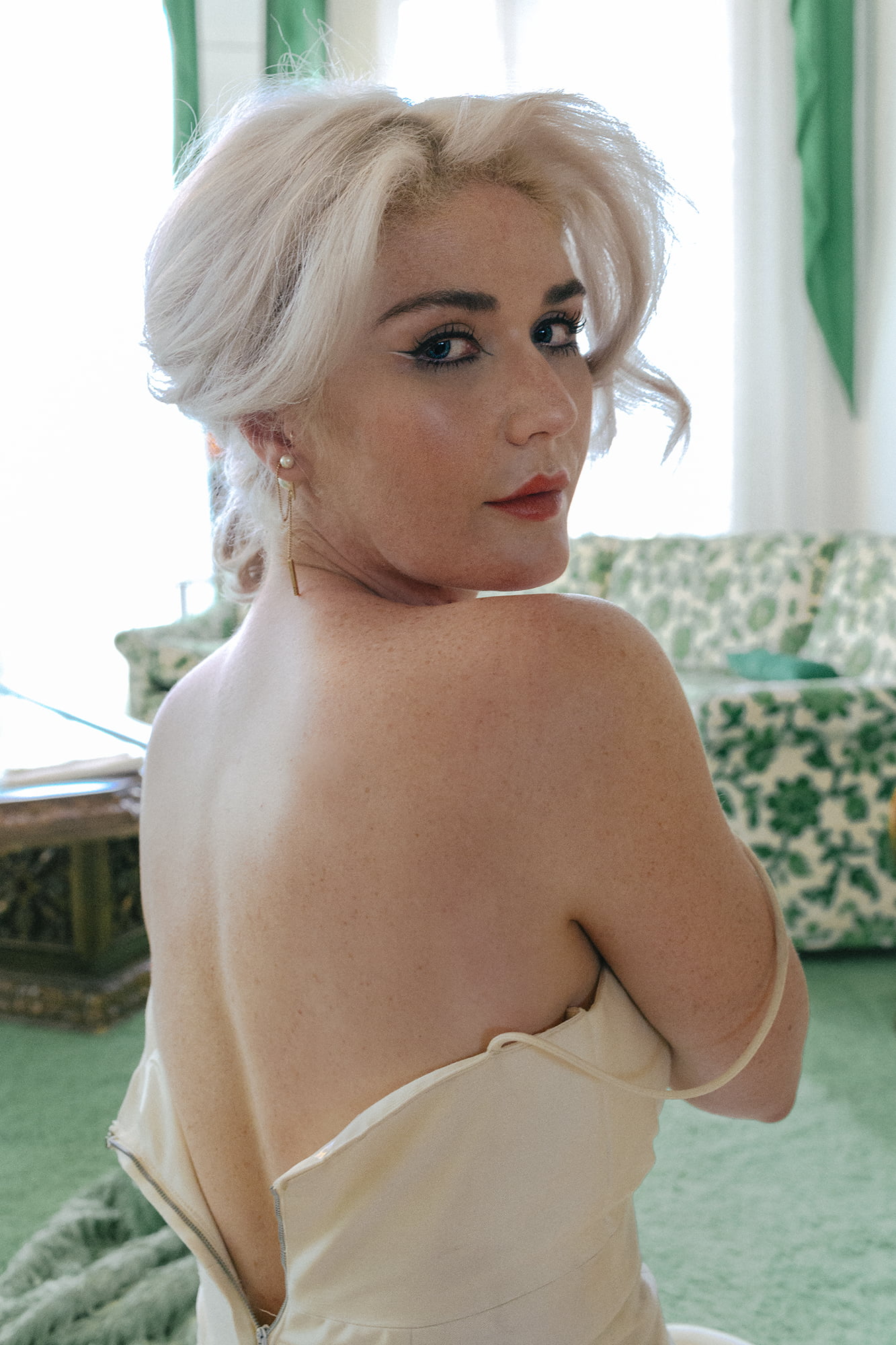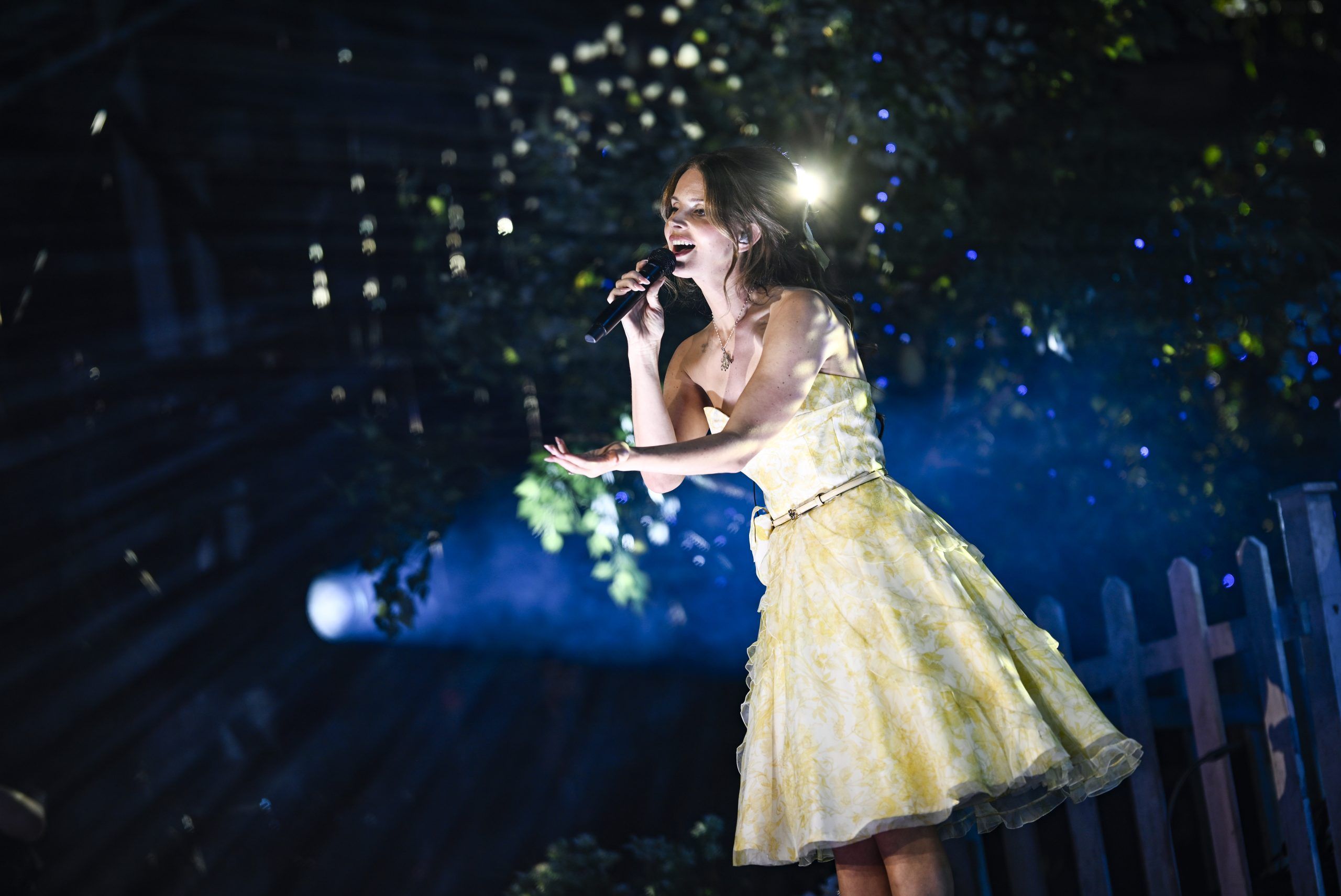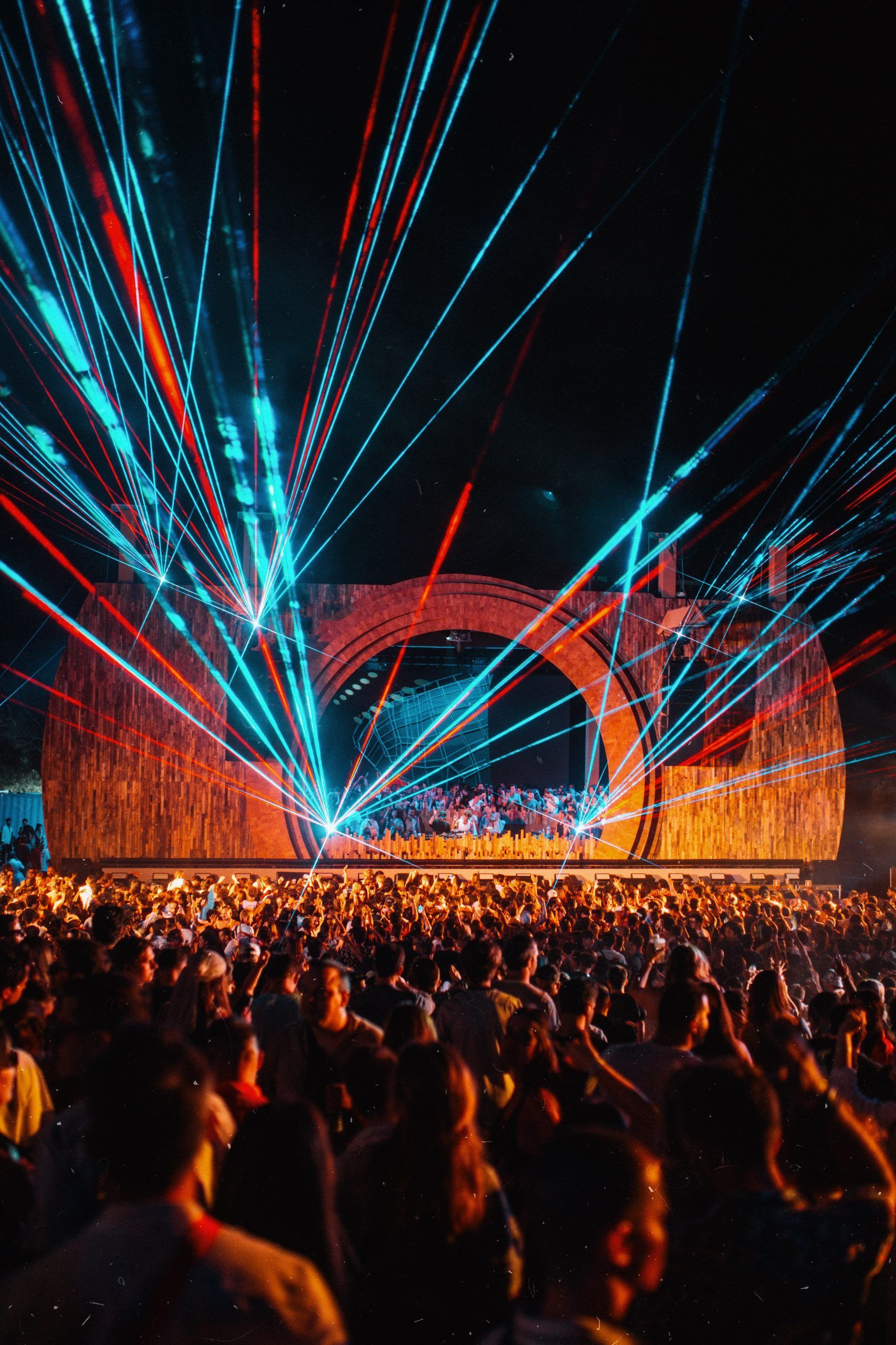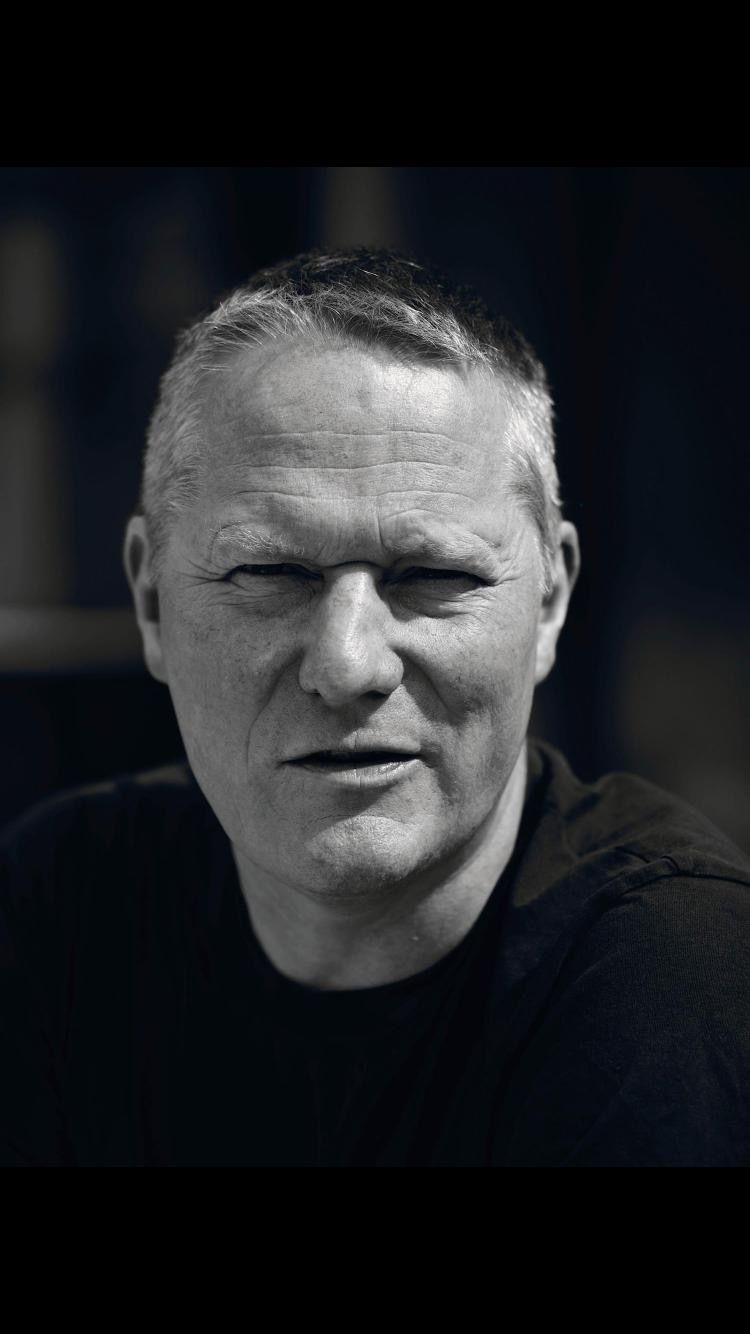Morgan Kibby has always been an exceptional talent and she’s finally taking centre stage with her sublime Sue Clayton album, Rookie.
For over two decades, the American musician and creative has gone somewhat unnoticed by many and unfairly so. Throughout the years, Kibby has flexed her musical talents in a solo project under the name of White Sea and as a sort-after collaborator, producer, and composer. Noticeably, the talent is most well known for being a previous member of M83 and co-wrote some of your favourite tracks from the electronic group. Alongside this, she has also contributed musical efforts for the likes of Panic! At The Disco, Harry Styles’s Fine Line, and Lady Gaga’s Chromatica to name but only a few. What’s even more impressive is that Kibby has also built up a solid reputation within the TV & film world thanks to her scoring work for projects such as The Power, Tales Of The Walking Dead, The Watcher and more. Through the multi-instrumentalist’s hard work and gift for penning songs, the criminally underrated artist now finds herself in a place where she can pick and choose what creative pursuit she wants to take on next.
And that’s where her new musical project comes in, Sue Clayton is a fictional character designed by Kibby and Clayton acts as a musical outlet for her to make a record that speaks to the country, Americana, and folk roots she grew up with. The debut Sue Clayton album, Rookie, is a gorgeously put-together body of work which is cinematic in scope, dramatic in all the right ways, and lyrically rich. Kibby has weaved together tales that paint Clayton as an interesting and complex character whilst managing to make a record that feels like it can stand the test of time.
To celebrate the release of Rookie, 1883 Magazine sits down with Morgan Kibby to discuss the Sue Clayton sonic persona, what it’s like working as a composer in TV & film, and more.
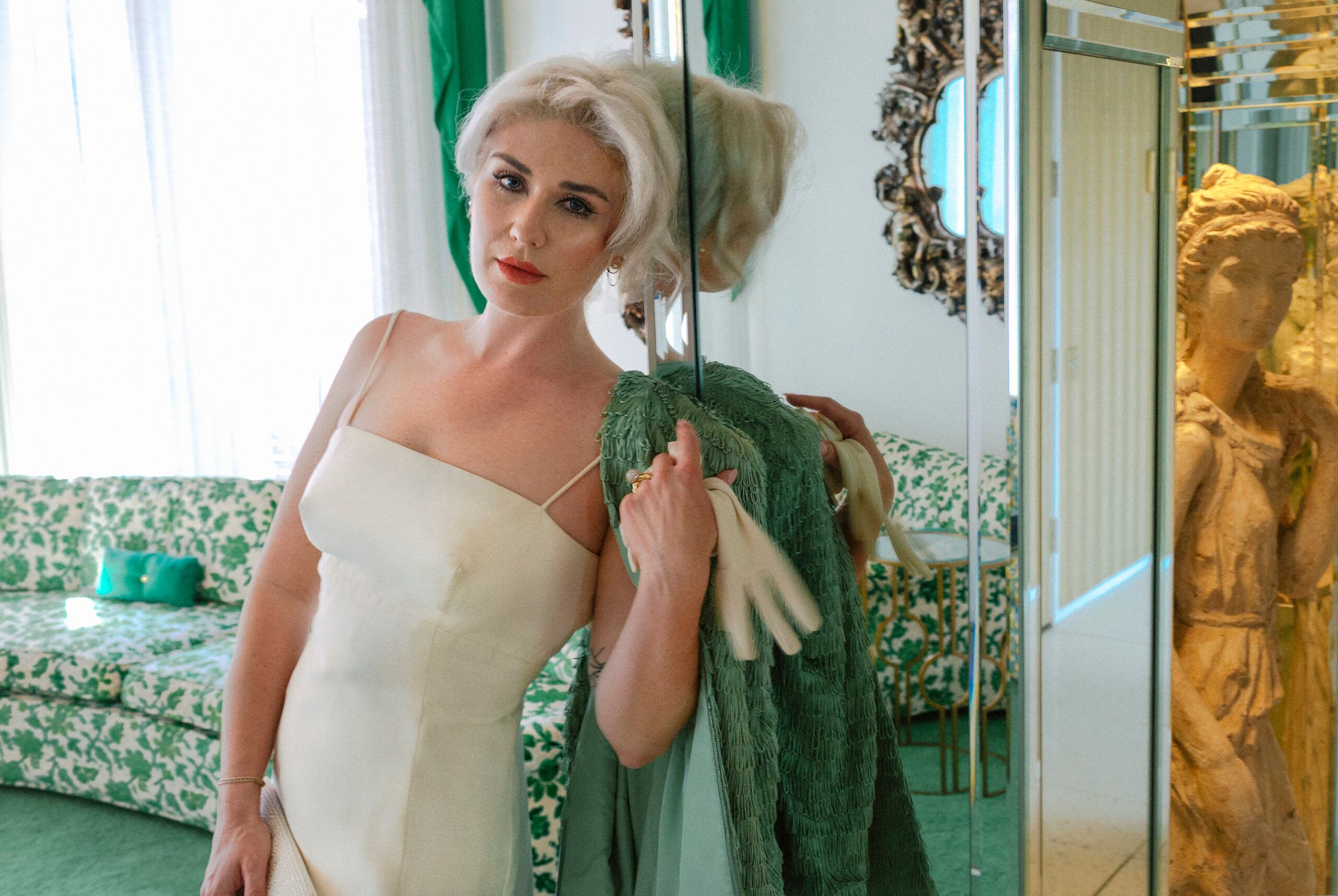
Hi Morgan congratulations on releasing your debut Sue Clayton record, Rookie. Would you mind sharing how this new sonic persona came about and what you find so liberating about writing music under this moniker compared to releasing it as a ‘Morgan Kibby’ or ‘White Sea’ album?
Well, thank you. It feels really good to put out some personal work for the first time in a very, very long time. I think White Sea was an umbrella, like a place for me to explore what the fuck I was doing. I was learning how to produce and there are so many formative experiences I think that are encapsulated in White Sea. If I’m being honest, I don’t think I ever figured out my voice within that project. I ended up pivoting. I got into composition, which is really where I felt that I’ve thrived over the last eight years. I really like working in collaborations, and I like having a ceiling to bump up against. I like parameters that I can then fight with to make them more expansive and bring my voice to the execution of what my boss needs, so to speak, whether it’s a showrunner or a director.
But with Sue, it was the first time in a long time that I wanted to come back to songwriting for myself. I missed it. I need to exercise both parts of my creative brain, and Sue was an opportunity to do that. I was really clear that I didn’t want to make electronic music for a while. I really wanted to go back to my roots, which is what I grew up with. My father is from Alabama. He’s an amazing guitar player. I grew up with banjo music, classic Americana and country. The way that I normally get enlisted in records is… yes, I do top line, but mostly as a lyricist. I think that’s one of my stronger skills. I’m always writing, and so I felt like there was a decade’s worth of words that needed to come out. So Sue offered me a fourth wall to be really fearless and vulnerable in writing that.
Given that this record marks your first release of personal music in nearly a decade, how are you feeling now it’s out in the world?
Yeah, that’s a great question. I mean, I feel honest. It’s really not that complicated. It feels unencumbered by expectation and undiluted by the expectation of what an artist is supposed to do in an era of breaking artists on TikTok [laughs]. I want to write songs that feel timeless, that you could come back to ten years from now and still feel moved by. I’d say 70% of music listeners really don’t give a shit about lyrics. I think that a good lyric can transform a great song into an incredible song. That’s kind of where this all started for me was really focusing on what there was to say. It feels very liberating to write something that I hope speaks to a swath of women, frankly, within a certain age range, who don’t really ever get fucking spoken to. You’re either 20 and you’re this—the youth culture obsession that we have in the West is very real, and I feel like art either speaks to them, or it gets categorised as this legacy shit. Good shit, but still it gets relegated to this kind of graveyard.
But what about everybody in between? [laughs] So for me, it feels really good, especially getting messages from people since the record has come out. I’m just like, ‘man, okay, I didn’t do this on purpose’, but I think the zeitgeist honesty of writing this record has allowed for real conversation with people who just don’t get spoken to in music these days on some level. So I feel very proud of that, and that feels really good.
There’s something quite cinematic, raw, and haunting about the tracks on Rookie. I had goosebumps after hearing Final Party for the first time. What’s your personal favourite from the album and why?
Oh, gosh. My personal favourites are three different songs for three different reasons. I think Helicopters is probably one of my favourites because it is so small and yet so metaphoric for just those brutal moments in life where you just, you know, when I start talking about ‘We kind of laugh, then we go silent’, it’s like how many moments have we had that with people that we’re deeply connected to, where you can find the humour in it when you’re with the right person, yet it still doesn’t make the situation okay. It’s deeply haunting to me and sticks with me. I’m very proud of that song for the rawness of it. Then I really like Extraordinary Life because I think it’s almost like a mantra for me as Morgan, not necessarily just for Sue, but this deep desire for big desire in one’s life and not limiting what you’re allowed to want, and this idea of bargaining with God that we all do and you’re like, ‘Wait, but I want to change the bargain ten years later. I changed my mind!’ I think that that’s almost like a life motto for me.
Then I think the last song on the record is where I really dug into the George Jones style of storytelling because it’s obviously not real, but I’m very proud that I kind of found a way to articulate these very simple things. Like her husband dying or this that and the other, without saying it. I keep coming back to ‘He Stopped Loving Her Today’, which is just one of my favourite songs ever and took a lot of inspiration from that. Though it may not be a classic like that song, I feel proud of how we were able to craft it so that it feels like something that you can revisit, I hope all the songs are for different reasons at different points in people’s lives. And it is very cinematic. I mean, the album starts off with a woman who is choosing not to do the thing that she was supposed to do because it doesn’t feel right, then the progression of her discovery, demise, discovery, demise, to then end on ‘okay, I’m shaking hands with the future and accepting that no one else is responsible for my own future besides myself’ and that’s speaking for me and Sue.
By having the character of Sue, I suppose you can take aspects of your life and dramatise them?
Rookie is a real story that has been dramatised. It’s very much like the documentary where some scenes were recreated for the experience of the viewer or whatever. Yeah, some of this is like so raw, so personal, so real to me, but there are lots of moments on here that are sentiments that are then dramatised to create better storytelling. I think that the guise of Sue, the fourth wall that she provides is really safe, I guess. It makes me feel like there’s more freedom in having a boundary. I know that sounds really oxymoronic. Is that the word? That’s the word, right? I think it allows for a lot of space to explore real things because there’s no danger of people going like, ‘Ooh, that’s just Morgan’, you know? And it’s not. Yes, of course, it’s founded in certain experiences or concepts that are very true to my own experience of life, but then I get to take it to a place where it’s fictionalised. There are metaphors. There are dramatisations of the experience that make it a cinematic ride, hopefully. That was the intention at least.
You actually ended up working with Producer Butch Walker on this record, did it feel weird at all not being at the helm when it comes to producing this time around?
I loved it. I fucking loved it [laughs]. That’s also the grace of getting older. I’ve got to be honest with you, I know what I want to do first and foremost, what my skill set is. I am also adept now because of composition, of allowing the people that are in my team when I’m creating something, whether it’s a score or an album, to go like: “this is what you are brilliant at, and I want you to be brilliant at it”. I did not want to be the one making executive decisions on my own. I wanted a real partner, which I’ve never had. And it’s not because I didn’t want it in the past. It just kind of never came to pass. I never had anyone who really decided to invest in me, if I’m being completely frank. To be invested in by Butch, who’s such a storied and accomplished producer, and who really was just like, “I get you and I want people to hear your voice”, that was incredibly moving to me and allowed for a lot of creative outflow that I don’t know would have come without having such an encouraging partner at my back. It was wonderful to hand things over to him because I have nothing to prove. I’ve already proved myself. I’m past the age where I need to stake claims and flags. Working with him was a very freeing experience.
As someone who has established a respected career in songwriting, composing and producing and has written/contributed to projects/songs for the likes of Harry Styles, Lady Gaga, M83 and many more, how do you think these individual experiences have positively impacted your craft as a solo artist?
Well, you just realise that everybody’s the same. The context may be more glamorised, or the stakes may be higher, but ultimately, creativity is in a room with a couple of people, if you’re lucky, and you’re just trying to do something that makes you feel good [laughs]. I think that one of the joys of having worked with giant and small artists alike is that I don’t really give a shit. I just want to do really good work. When I’m in collaboration with people, I want to do what’s right for them, but I want to find a way to bring my voice to it because that’s why I’ve been asked into the room. It’s time. It’s age. I think we need to take a step back and acknowledge that it fucking takes time to get good at something.
I only feel like I’ve stepped into a place in my career and as an artist, as a creator, where I don’t second guess myself as much anymore because I’ve earned that right with the amount of work that I’ve done, and it doesn’t matter who it’s been for. It’s a collective… It’s an aggregated sense of confidence that I would say, ethos-wise, is absolutely something that I brought to Sue. I just don’t question myself. If it feels good, then that’s the right place to go. There’s no other ulterior motive. I just want it to feel good because now I know that the foundation has been built, that when something feels good, there’s a reason for it, and it’s actually true to what it is that I’m trying to create as opposed to pandering. I don’t want to pander.
For sure. When it comes to working on music that’s personal to yourself, you don’t have anyone else in the room that you’re making it for. It’s solely for yourself. I feel a lot of rising musicians feel like they have to pander to certain audiences or to social platforms like TikTok but you make music first and foremost for yourself.
Exactly. Yes. I mean, I want to give young creators a lot of credit because I think that we all start out wanting to make music because it gives us that full-body joy. That’s why we make music. I love singing with other people. I love playing with other people. That’s where it starts for 99% of us unless somebody is very calculated. And that does exist, and props, like I’m not judging. But I think the majority of people that make music, it’s because it is something they can’t help but do, especially with the constraints that I think a lot of young artists are under today, where it’s just a different world. This is part of why I testified in Congress two years ago about digital copyright law, we are effectively undermining a whole subset of young creators from having access to making a living by taking risks. If we don’t create an environment where people can feed themselves by taking—like, where’s the next Bowie going to come from? I don’t fucking know. I don’t know that our environment allows that to happen. If you look at weird subsets of music that are being slightly successful, I won’t name names, there’s still an element of cool, but it’s still calculated. It feels marketed. It feels this, that, and the other.
I understand that that needs to exist, but I think that…’m digressing a bit here. I’m sorry. I just feel like it’s a very hard world to create fearless content that is solely based in oneself these days because there are not a lot of avenues in which to, frankly, monetise risk-taking. It takes a really special person to be able to do that, especially at a younger age. I’m afforded to do Sue because that’s not how I make my living. I can step back and decide to make a country-Americana-folk album and it’s fine because my expectation is nil. It’s zero. All I want to do is just make something that feels good to me because it came out of me. But I’m lucky. I have a career in making music for other people and for cinema and TV, and that affords me the freedom to take risks because I can feed myself. I think that we don’t talk about that enough. So I just want to acknowledge younger people because I know how hard it is and stand very much in solidarity of trying to make that better for them and talking about this as a whole, for what it’s worth.
We also need to talk about your composing work for TV and film. For anyone who doesn’t work in the music industry, would you mind please sharing how working on a project for TV and film differentiates from writing music for artists? Are you just given a brief and then creative freedom?
It is the hardest job I’ve ever had in my whole goddamn life. It is so demanding body-wise. I sit in this chair for sixteen fucking hours a day. I’m fucking tired. I love what I do, but it is hard work, and I am at the bottom of the post-production food chain. Music is essential for crafting the digestion of a creative idea of a story. The WGA is on strike right now. Of course, standing in solidarity, but I look at us, and I’m just like,’wait a second’ we’re a huge part of this process and nobody gives a shit about us. We’re hired late. It’s a really hard job, and it is so creatively satisfying because to see in real-time how something that one writes can change the course of how something is digested is insane. That gives me tremendous pleasure creatively, where I get to craft a vision with my collaborators, show runners, directors, producers, studios, etc. But yes, technically speaking, I’ll get a locked cut, let’s say of an episode of TV or movie, and I will have had creative conversations with the team beforehand. Then everybody works in their own way. I’m not a traditional composer, so for me, I don’t frequently just do thematic sweeps that then get extrapolated stem-wise throughout an episode or a season.
I tend to write every scene, and depending on what the project requires, obviously incorporate a theme when appropriate. But it’s a very, very demanding job. It’s made me infinitely a better musician, better boss, and a better creative. Running a music department is no small feat, and I’ve never had a mentor. I didn’t go to college. I never graduated from college, let’s say. I went to community college for a bit. I’ve learned everything firsthand just by muddling my way through it, and I’m very proud of that. To have done something like The Power this year, which I was just like, “oh, there’s no way I’ll get hired for that. It’s too big.” But then to do it and go like, oh, wait a second, my lack of parameter has allowed my voice to shine through. So I get hired to do the thing that I do best, which I am so eternally grateful for.
And now, it’s a question of strategising a bit for myself personally. I’ve had a season of ‘yes’ over the last decade of my life. I think everyone has to go through a moment when they’re in their 20s and their early 30s of going like, “I can’t say no to anything.” That’s just a normal rite of passage. I’ve exited that over the last couple of years. Now I’m just trying to think about like, well, what’s going to move me forward as an artist? What is going to elevate the projects that I’m a part of? How do I participate in that as an equal player? How do I bring something that’s special? So yeah, I hope that answers the question. That was a bit digressive, but you know what I mean.
Can we expect more from Sue down the line or will we see more characters come to life in the future?
Who knows? Who is to say? But I do have to say that Sue is definitely at the nascent stage. I think she’s got at least another one in her, and I don’t know where that story is going to take her because Rookie is such a crystallised moment in time. To your first question, it’s named Rookie because that’s how I feel as a human being. It has nothing to do with my work. It is coming to an age where you realise you know nothing, and it’s always rewriting itself. So yes, I think that Sue probably has another record in her. I hope so. [laughs]
Finally, what is one thing you would like to manifest for yourself this year and why?
I want to manifest for myself a holistic paradigm shift between my personal and my professional life. As free as I’ve been in my life, I’ve lived a really extraordinary life, I feel so grateful for the experiences that I’ve had. But it’s been under the constraints of larger paradigm cultural expectation, and I just don’t want to do that anymore either on a personal level, as a woman or as an artist. I kind of want to redefine what it means to have a really fully engaged creative and personal life. That’s my answer.
The Sue Clayton debut album, Rookie, is out now. Follow Morgan Kibby @MorganKibby
Interview Cameron Poole

